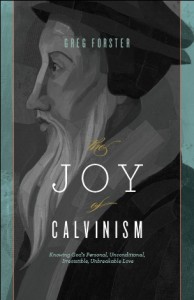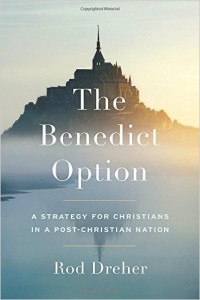
At Desiring God, Tony Reinke (taking time out from plugging his new book) offers a thoughtful critique of a central contention in my book, The Joy of Calvinism. I argued that Calvinism invites us to experience a greater fullness of the joy of God because only Calvinism can provide an adequate ground for “settled certainty that God is in control.” Reinke asks for a more Christocentric and cruciform description of theological joy, wanting to emphasize that our joy is a creaturely experience of God’s own joy that is purchased for us and obtained through the cross of Christ.
I’m grateful to Reinke for this opportunity to interact. His critique is a valuable one that has forced me to think carefully in order to respond – praise God that he gives us the gift of one another!
Reinke and I appear to agree that we are not dealing here with any direct theological disagreement, but rather with a difference of emphasis. I think what he says is true and he thinks what I say is true; the question is, which approach is preferable?
The topic of my book is not just “joy” but “the joy of Calvinism.” The question I was asking was, in effect, “what are the distinct contributions of Calvinist doctrine to the experiential side of Christian belief?” If Calvinism is true doctrine, we ought to expect it to enhance or enrich our daily experience of Christ in important ways; I wanted my book to express what I thought those ways were. (And also to defend the truth per se of the doctrine, at least at an introductory level.)
Now obviously I am not going to say that Calvinism has no bearing on our understanding of the cross, having written in The Joy of Calvinism that the main reason we ought to pay close attention to the difference between Calvinism and other doctrines is precisely because Calvinism offers a starkly different understanding of what Jesus did on the cross!
That having been said, I do think that if the question is “why does belief in Calvinist doctrine increase our joy?” the clearest answer I can give is “because its understanding of the sovreignty of God puts to rest fully and finally all questions about whether any given element of human experience, no matter how small, will ultimately be used of God for good.”
Or, as B.B. Warfield put it in his essay “The Theology of John Calvin”: “The Calvinist is the man who sees God behind all phenomena…God fills the whole horizon of the Calvinist’s feeling and thought.”
Warfield goes on to make a comment that I think highlights why I took the approach I did and not the one Reinke prefers:
Calvinism, however, is not merely a soteriology. Deep as its interest is in salvation, it cannot escape the question: “Why should God thus intervene in the lives of sinners to rescue them from the consequences of their sin?” And it cannot miss the answer: “Because it is to the praise of the glory of his grace.” Thus it cannot pause until it places the scheme of salvation itself in relation with a complete world-view in which it becomes subsidiary to the glory of the Lord God Almighty. If all things are from God, so to Calvinism all things are also unto God, and to it God will be all in all. It is born of the reflection in the heart of man of the glory of a God who will not give his honor to another, and draws its life from constant gaze upon this great image.
As I emphasized in The Joy of Calvinism, we can never have joy as long as our own emotional experiences are what we really care about.
Now, I know that some people can go too far in the other direction and turn “all things for God’s glory” into a dehumanizing hermeneutic of suspicion in which everything other than God himself is presumptively suspect as a potential rival to God’s glory – which ultimately means the creation was the fall, and no Christian ought to accept that. I think we hedge against this by emphasizing that God is holy love in the Trinity, and the primary way in which God glorifies himself is by manifesting his holy love for his creation. Even within the Trinity, we find in the New Testament that the Father does not glorify himself but rather the Son, the Son does not glorify himself but rather the Father, and the Spirit does not glorify himself but rather the Father and the Son. God is not egocentric.
Nevertheless, this also becomes lopsided if we do not also demand that all things are in fact there to give glory to God and for no other purpose; that they do so as expressions of his holy love doesn’t change the fact that this is in fact their job.
What that adds up to, at least as far as I can see, is – as Warfield so beautifully put it – that salvation itself is a doorway into something so great that beside it even our own salvation no longer occupies our central attention. For of course that really would be egocentric, to spend eternity thinking about how wonderful God must be to have saved me.
Reinke is right that we do not achieve joy by meditating on the doctrine of God’s sovreignty. We achieve joy by glorifying God. But it is the doctrine of God’s sovreignty that allows us to see God behind all phenomena, and thus see that as all things are from God, so all things are also unto God, and to us God will be all in all.



